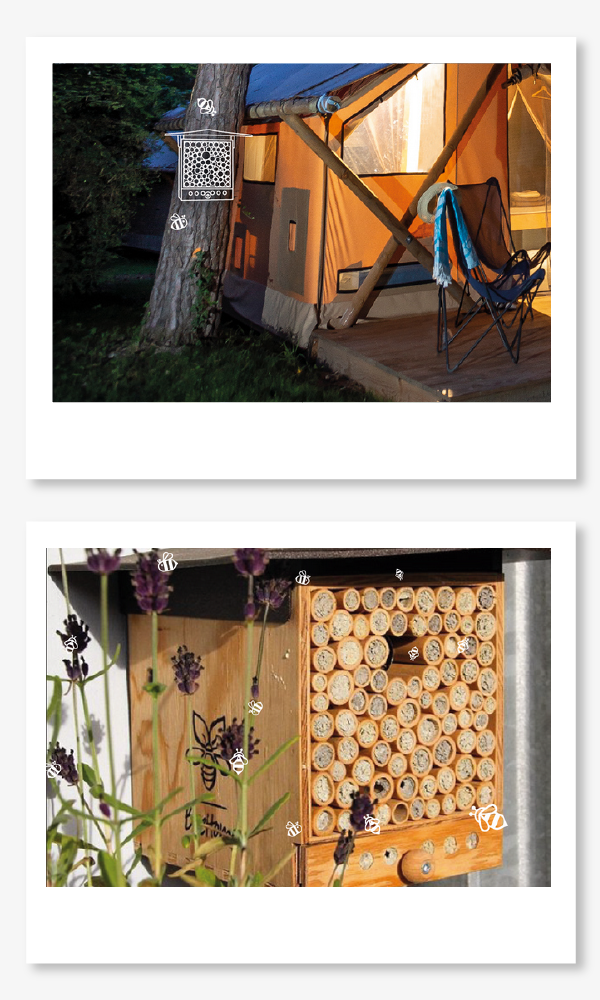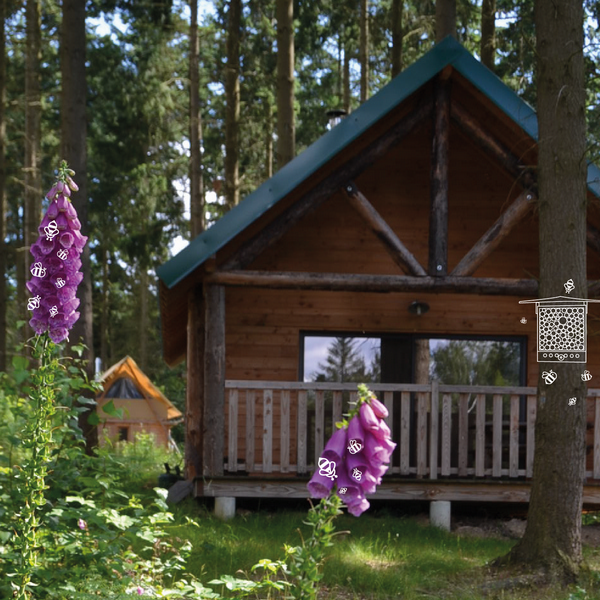Together with our partner Pollinature
We would like to help spread the use of shelters for wild and harmless bees: BeeHomes.
These wild bee houses can be quite simply set up on a balcony, in town or in the countryside, in a residential area or in a vegetable garden.
Each BeeHome is delivered with a tube containing mason bee cocoons (about 20 cocoons). Mason bees hatch in the spring with the first rays of sunshine. As soon as they are born, they are active: they reproduce, build nests and travel great distances to provide pollen and nectar for their young. This foraging is good for wild flowers and good for humanity!
We began supporting this campaign by setting up BeeHomes on all our Campsites and Villages and promoting the wider use of these wild bee shelters…


Learn more about mason bees…
The mason bee, a fascinating wild bee
Without bees, a third of our food would disappear, for most plants only develop if their flowers are pollinated. Besides the honey bee, there are nearly 1000 different species of wild bees in France. These bees carry out much of the pollination of our cultivated and wild plants. Like most other wild bee species, mason bees don’t produce honey, form colonies or sting. As cavity bees, they nest in cavities, such as the tubes of the BeeHome.
An outstanding pollinator
Because mason bees carry dry pollen on the undersides of their hairy abdomens and are very tolerant of low temperatures, they pollinate up to 300 times more efficiently than honey bees. Mason bees are also very common in Central Europe and appreciate towns as much as the countryside.


